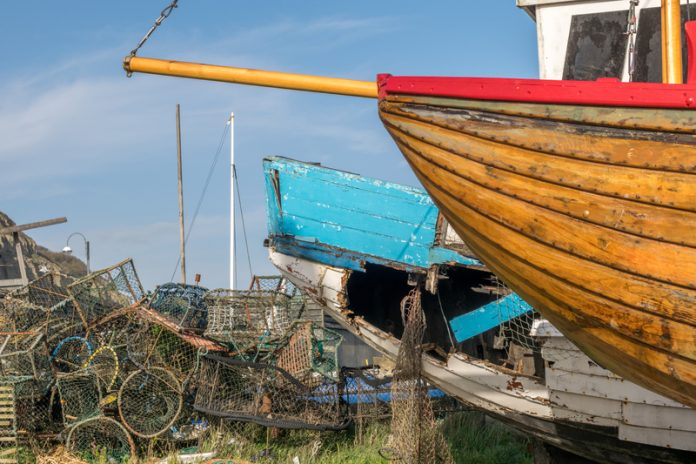Karmenu Vella, European Commissioner for Environment, Maritime Affairs and Fisheries charts his priorities to improve the state of the ocean and ensuring a future for Europe’s fisheries
When I was entrusted with the portfolio of fisheries and maritime affairs, improving the state of the ocean and ensuring a future for Europe’s fisheries became two of my top priorities. An ambitious endeavour with many obstacles to overcome where overfishing and plastic pollution are probably two of the most pressing issues.
The challenges are indeed significant, but so are the rewards. We all started down this path determined to ensure the environmental, economic and social sustainability of EU fisheries over the long-term. And I am happy to say we have made real progress.
In many parts of the EU, fish stocks are arguably in the best shape they have been in decades. Over the last 10 years, the number of stocks that reached sustainable levels has increased from five to 53 (out of 76).
In 2018, 97% of the volume of stocks managed by the EU alone and subject to full scientific assessment, have been fished sustainably. Concretely, this means fishermen only take out of the sea the maximum amount of fish that would not hinder the regeneration of the stock.
Our efforts are clearly paying off, but we have not yet reached our goal to bring fishing for all stocks at sustainable levels. Some species are more sensitive and more difficult to assess and manage than others. Such is the case of the deep-sea species, which are highly vulnerable and take a long time to grow and reproduce.
Over the years, deep-sea stocks became more and more depleted. The fishing pressure on most of these stocks is too high. The particularly difficult deep-sea environment makes it hard for the International Council for the Exploration of the Sea (ICES) to do a detailed assessment. So, while these stocks are by nature vulnerable, we also have to take into account the additional uncertainty of limited scientific insight.
Therefore, we base our decisions on precautionary advice by the ICES to avoid further depletion of the stocks in the short-term and maximise the chances of reaching sustainability in the long-term.
For 2019 and 2020, the Commission put forward a proposal, endorsed by the Council, to reduce catch limits for several stocks, until their evolution shows a positive trend. The good news is that the reductions are smaller than in previous years. In some cases, Member States made additional commitments to adopt national measures to protect juveniles. It shows that we are heading in the right direction.
Even better, the positive evolution of the two stocks allowed us to increase fishing opportunities. It is another good indication that we are getting closer to bringing deep-sea stocks to healthy levels.
And this is good news for fish and fishermen alike, especially for the artisanal and small-scale fisheries that target deep-sea species.
We have seen that fishing sustainably pays off not only for the environment but also for the economy. This is why we are determined to ensure that we have healthy fish stocks in deep-sea waters, for the sake of our fishermen and coastal communities, their livelihoods, and for our marine ecosystems.
Now to our second very big challenge. No shore, no seabed is spared the presence of marine litter, and its effects are being felt throughout the food chain, from microscopic organisms all the way to our dinner plates. The problems are complex, there are gaps in our knowledge, but there is no doubting the urgent need to act.
Europe’s marine environment is already protected by exacting standards, from agricultural rules and wastewater management obligations to laws that cover the delivery of waste in ports. But we know it’s not enough, so we’re stepping up the action with new legislation that firmly enshrines a Europe-wide effort to halt the littering of objects that end up in our seas.
The first EU strategy for plastics, adopted in the summer of 2018, should also help tip the balance. The aim is to rethink our approach to the material, stressing its value and adding incentives for plastics recycling. The new piece of legislation on single-use plastics that we proposed joins the dots between waste management, marine environment policies and efforts to clean up our seas. The Directive on Single Use Plastics is also part of this strategy, targeting fishing gear, as well as the items most frequently found on beaches.
Much of the litter originates outside Europe, so we are also committed to supporting and assisting our international partners, and to lead on the topic in international fora, such as the UN, G7 and G20. Europe funds projects that monitor and assess plastic litter and its impacts, and measures to prevent and reduce the problem through a variety of funding instruments. Our proposal is being seen as a model for other countries to follow and India, for example, wants to abolish all single-use plastics by 2020.
In keeping with the global nature of these problems, the EU made 23 fresh commitments to improve the condition of our oceans at the Our Ocean conference in Bali in October 2018. This was backed up with an extra €300 million for EU-funded initiatives, including projects to tackle plastic pollution, make the blue economy more sustainable, and improve research and marine surveillance. This is part and parcel of Europe’s determination to tackle the problem of litter while we still have time.
Karmenu Vella
Commissioner for Environment, Maritime Affairs and Fisheries
European Commission
Tel: +32 2 299 96 96











